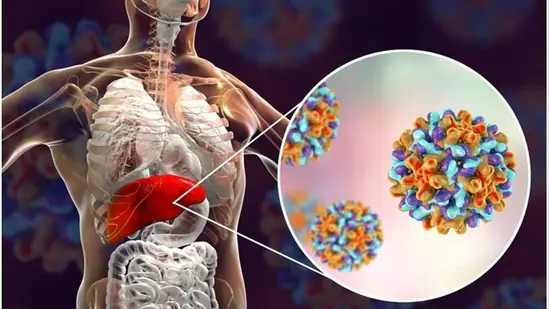HAV or Acute Viral Hepatitis A is defined as the inflammation of the liver, which is generally caused by infection with one of the five Hepatitis viruses and almost 10-30% of cases related to HAV belong to children. Here’s all you need to know about it and tips to prevent it
The world has just witnessed a massive pandemic and while the worst may be over, the impact of the last two years is still quite being felt across countries and communities. However, the good news is that as the world is opening up, people are starting to explore the outdoors again. While this spells good news for economies, multiple factors are increasing our exposure to bacteria and viruses, mainly because we are once again stepping outside without masks and practising basic hand hygiene.
In the last few months, there has been a spurt of infections and contagious diseases like measles, dengue and even Viral Hepatitis A (HAV). In an interview with HT Lifestyle, Dr Gaurav Gupta, Director-Liver Transplant and HPB Surgeon at Fortis Hospital in Mulund, explained, “HAV or Acute Viral Hepatitis A is defined as the inflammation of the Liver, which is generally caused by infection with one of the five Hepatitis viruses. Almost 10-30% of cases related to HAV belong to children. Hepatitis A is an RNA virus, the incubation period for which averages 30 days and can sometimes even extend to 49 days.”
Talking about the symptoms, he said, “HAV infection is usually silent or subclinical in children. Symptomatic Hepatitis occurs in approximately 30% of infected children younger than six years, but mostly it is a self-limiting illness where symptoms may persist for just 2 weeks. In contrast, older children, and adults with HAV infection are usually symptomatic for several weeks, approximately 70% suffer from Jaundice, and nearly 80% per cent have Hepatomegaly (a condition that causes the liver to become larger).”
Revealing some treatment measures, he said, “In most cases, HAV is a self-limiting disease, so it does not require any specific treatment methodology or hospitalization. The best way to recover from HAV is through bed rest, good hydration and nutrition that will help the body to tide over the virus. In the last six to eight months, there have been several cases where HAV infections has persisted for more than three to four months. These patients have shown symptoms related to Jaundice, although they do not have very high INR (International Normalized Ratio). or encephalopathy, which are markers of ALF. These patients are diagnosed with ‘Sub Acute Liver Failure’, which might require a Liver transplant.”
Keeping this in mind, the prevention of HAV is highly critical. Dr Gaurav Gupta cautioned, “As HAV is transmitted primarily through the faecal-oral route, homes and toilet areas must always be kept clean. The virus is shed in the stools of infected persons, with peak viral excretion occurring in the two weeks preceding the onset of Jaundice and during the initial phase of clinical illness. This virus can contaminate food and water or transmit through contaminated fomites. However, person-to-person spread through close personal contact is the most common mode of contamination for this virus, with frequent occurrence of secondary cases among household or school contacts of those infected.”
In India, HAV infection is widespread, although it usually occurs early during a person’s childhood. Dr Gaurav Gupta pointed out, “Infection at this age is often asymptomatic, leading to life-long immunity against reinfection.” According to him, it is also essential to know that prevention and control of HAV infection relies on breaking the chain of transmission using one or more of the following measures:
1. Improving hygiene and sanitary measures
2. HAV vaccine is the most effective method for specific pre-exposure prophylaxis. These vaccines are administered intramuscularly in the deltoid muscle, and two doses are given 6-18 months apart. Also, these vaccines are very effective in protecting a person from HAV infection as they have been able to induce protective antibody levels above 95% in the recipients, even after receiving their first vaccine dose.
Dr Gaurav Gupta concluded, “Hepatitis A is also a common cause of Jaundice in children and adults, with common symptoms being fever, fatigue, nausea, vomiting, loss of appetite and Jaundice. The good news, however, is that HAV infection usually results in an acute, self-limited illness and rarely leads to acute hepatic failure. Less than 0.1% per cent of HAV patients have Acute Liver Failure (ALF) which can become a life-threatening condition. Further, if a patient is diagnosed with ALF, having a Liver transplant is the only way that they can survive the disease. In conclusion, good hygiene practices coupled with widespread vaccination coverage and awareness can dramatically protect us from this common infectious Viral Hepatitis.”

